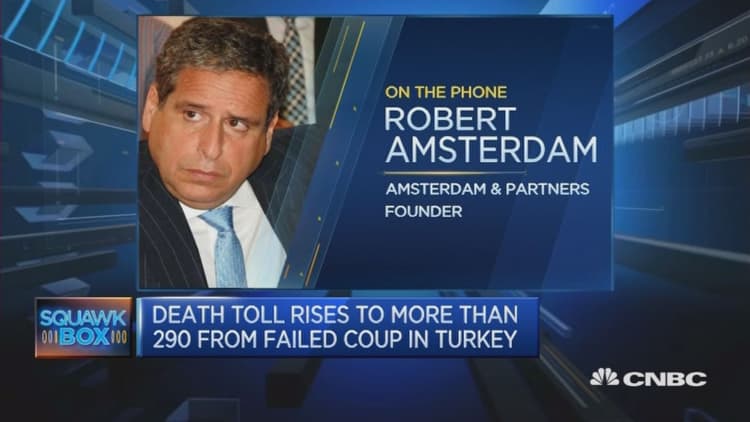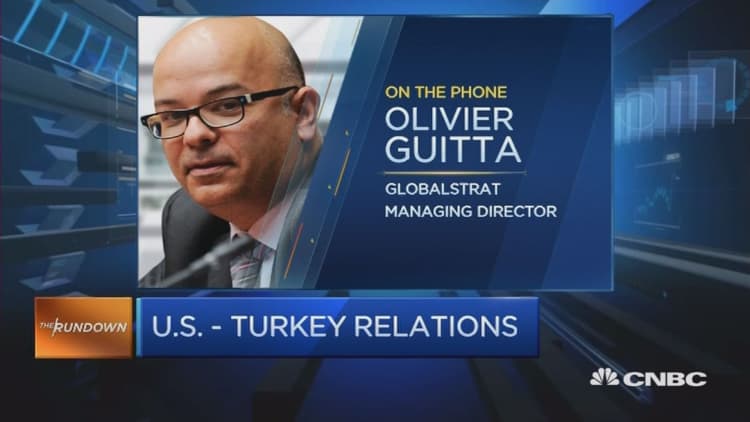



A failed military coup in Turkey over the weekend will give the administration of President Tayyip Erdogan the opportunity to intensify its crackdown on dissenters, analysts said Monday.
Since the attempted coup over the weekend, the number of people rounded up in the armed forces and judiciary has risen to 6,000.
Erdogan is blaming the coup on a "terror group" led by Muslim cleric Fethullah Gulen, who is based in Pennsylvania. Gulen has denied any connection with the coup.
"There's plenty more (purges) to come … Erdogan will use this as an example of why the constitution needs to be changed to fundamentally rid Turkey of its coup-ridden past," Reva Goujon, an analyst at geopolitical consultancy, Stratfor, told CNBC's "Squawk Box".
Since his party won the parliamentary elections in November last year, Erdogan has been pushing for constitutional changes that will give the president more powers.

"You're going to see purges of judges, of military personnel, of the police, to really eliminate system of any dissenters, including those of the Gulen movement," added Goujon.
The rapid arrests of dissenters showed that Erdogan was "ruthless in crashing his political opponents," Lowy Institute for International Policy's research fellow, Rodger Shanahan, told CNBC's "Capital Connection"
"There wouldn't be enough time to do any kind of investigation into the coup, so these people would have been on a pre-existing list of his political enemies, so we are going to see harsh crackdowns," said Shanahan.
Turkey has said it is putting together an extradition request for Gulen.
Lawyer Robert Amsterdam, who represents Turkey's government, told CNBC the Turkish authorities had sufficient evidence against Gulen.
The U.S. government has said it would consider any formal request.
With the coup happening at a time when Turkey is pushed increasingly into prominent roles in global affairs, Erdogan is expected to use the situation to his advantage.
"Turkey is going to leverage this issue and leverage the U.S.'s need for Turkey to participate in the fight against the Islamic State to secure the extradition," added Goujon. Turkey is a leading member of the U.S.-led coalition against the Islamic State.
As reports of violence against coup plotters spread, European leaders were also getting increasing jittery.
Pictures on social media showed detained soldiers stripped to the waist, some wearing only their underpants, handcuffed and lying packed together on the floor of a sports hall where they were being held in Ankara, Reuters reported.
One video posted on Twitter showed detained generals with bruises and bandages. Akin Ozturk, head of the air force until 2015 and identified by three senior officials as one of the suspected masterminds of the coup plot, was among those held.
Despite concerns over human rights, the European Union had earlier brokered a deal with Turkey to halt illegal migration flows to Europe through Turkey in return for financial and political rewards for Ankara.
European politicians have warned Erdogan, however, that the coup attempt did not give him a blank check to disregard the rule of law.
Reuters contributed to this article.

